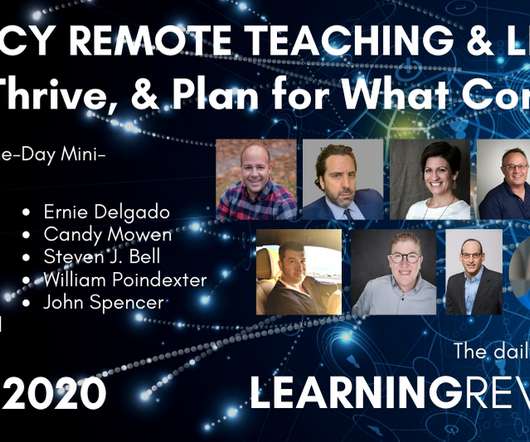Wednesday's "Emergency Remote Teaching & Learning" Mini-Conference - New Sessions Added
The Learning Revolution Has Begun
APRIL 20, 2020
Secondary sessions are held in Zoom meeting rooms with a capacity of 300--if those rooms are full, you'll have to wait for the recording to watch. In moving from classroom-based instruction to online instruction, the role of the faculty member changes from the content presenter to the facilitator of online learning.















Let's personalize your content